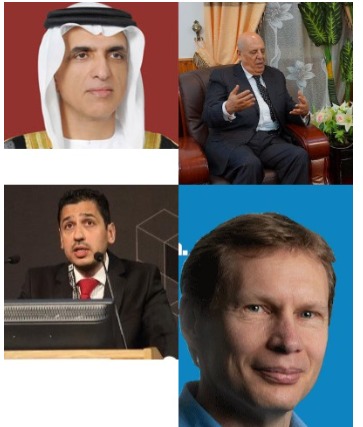By Hamza Bavuai, Unguja
The 8th phase government in Zanzibar under the leadership of HE. Dr Hussein A. Mwinyi has prioritized deliberate efforts to attract investment in Zanzibar. A very tall order, all things considered, seeing as President Mwinyi took office in the middle of a global pandemic.
The fact that a significant portion of the isle’s economy depends on tourism, a sector affected the most by the pandemic perhaps, made operational realities of the new government that much more challenging. Zanzibar – already embarked on an economic diversification journey through energy in general and oil and gas in particular – holds a promising vision of a more resilient economy in the next 30-odd years, an economic vision that responds to some of the most pressing issues in the isles, i.e. employment, resilience to global economic shocks etc.
Oil and Gas is perhaps the most significant aspect of this vision that is reflected in Zanzibar’s current operational environment – albeit in its very early stages. RAK Gas being the only investor in the sector in Zanzibar – with a license on the Pemba – Zanzibar Block, has made significant investments over the years in Zanzibar after acquiring the acreage from Antrium, thanks to the legislative and regulatory reforms in 2016 that untangled the sector from the complex union matters, effectively making Zanzibar autonomous on all matters relating to oil and gas.
However, RAK Gas – the sole investor in the oil and gas sector in Zanzibar – will relinquish 50% of its acreage in the Pemba- Zanzibar block come December, thanks to a provision in the oil and gas act of 2016. It emerged, during the budget sessions of the house of representatives this past June, that RAK Gas had not met its contractual obligations of having done a 3D seismic campaign as well as at least one exploration well. Omar Sharif, in his article on Ecofin agency, expounded on potential reasons and impact of this reality come December.
On the one hand, it could mean low investor appetite for the sector in ZNZ as RAK Gas potentially hasn’t been able to attract a partner investor in the project – perhaps due to challenges in the regulatory and/or fiscal regime in the sector. On the other hand, it could attract even more investors if the reasons for RAK Gas relinquishing its acreage is purely based on lack of capital on RAK Gas’s part – as has been aired by the general public in a recent club-house room discussion on the oil and gas sector in Zanzibar.
Omar Sharif placed Zanzibar’s oil and gas activities in the context of energy development in the eastern Africa region, i.e. Mozambique with FID for an LNG and ~100 TCF of proven reserves, Tanzania with rekindled negotiations for an LNG project and 57 TCF of gas reserves. All this is against Zanzibar’s potential 3.8TCF of unproven reserves.
However, the isles government is gearing up for auctioning more blocks as evidenced by recent developments in the handing over of exploration data from TPDC to ZPRA, sectoral regulatory authorities for Tanzania and Zanzibar, respectively and contracting Schlumberger Inc. for data processing and marketing. While this does not guarantee to attract investors in the sector, it is anyone’s guess what an auction for blocks on the eastern coast of Zanzibar will bring, given the shifting dynamics in energy security in Europe and the general energy transition movement across the globe.
RAK Gas has had other interests in the region – Malawi, specifically – where it holds acreage in lake Nyasa/Malawi. It is well documented in the public domain in Malawi that there are more questions than answers regarding how RAK Gas came into possession of the blocks in lake Nyasa/Malawi. Allegations of bribery and kickbacks to government officials, some pointing to the land’s highest office during Joyce Banda’s rule, have been levelled. [money going to a Banda’s charity prior to elections, RAK Gas overpaying fees to govt coffers prior to being awarded blocks].
It is also mentioned that multiple companies – with the same principle as RAK Gas’s then CEO, Mr Kamal Attaya – were also awarded blocks in Malawi. It should be noted here that Mr Attaya was the CEO of RAK Gas when it signed a PSA with the Zanzibar government in 2018.
While there is no public record in Zanzibar of similar methods being deployed by RAK Gas and its then-CEO, it begs the question of whether this absence of a public record is evidence of the absence of the modus operandi employed in Malawi.
Furthermore, it adds a 3rd dimension to Omar Sharif’s analysis of the current situation of the sector in Zanzibar. Namely, is RAK Gas failing to fulfil its contractual obligations due to a regime change, i.e. one where the old modus operandi (if any) is a no-go? Has the 8th phase government clamped down on shadowy dealings – through the reshuffling of key personnel in the sector, i.e. ministers and technocrats – so much so that it makes it difficult for the RAK to operate in Zanzibar the same way they’ve done in Malawi?
In the next instalment of this series of articles, I invite you to explore with me how RAK Gas may have ‘pre-determined its luck’ in landing the acreage in Zanzibar, signing a PSA and operating prior to hitting the recent brick wall as H.E Dr Hussein A. Mwinyi took office.


